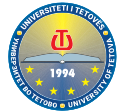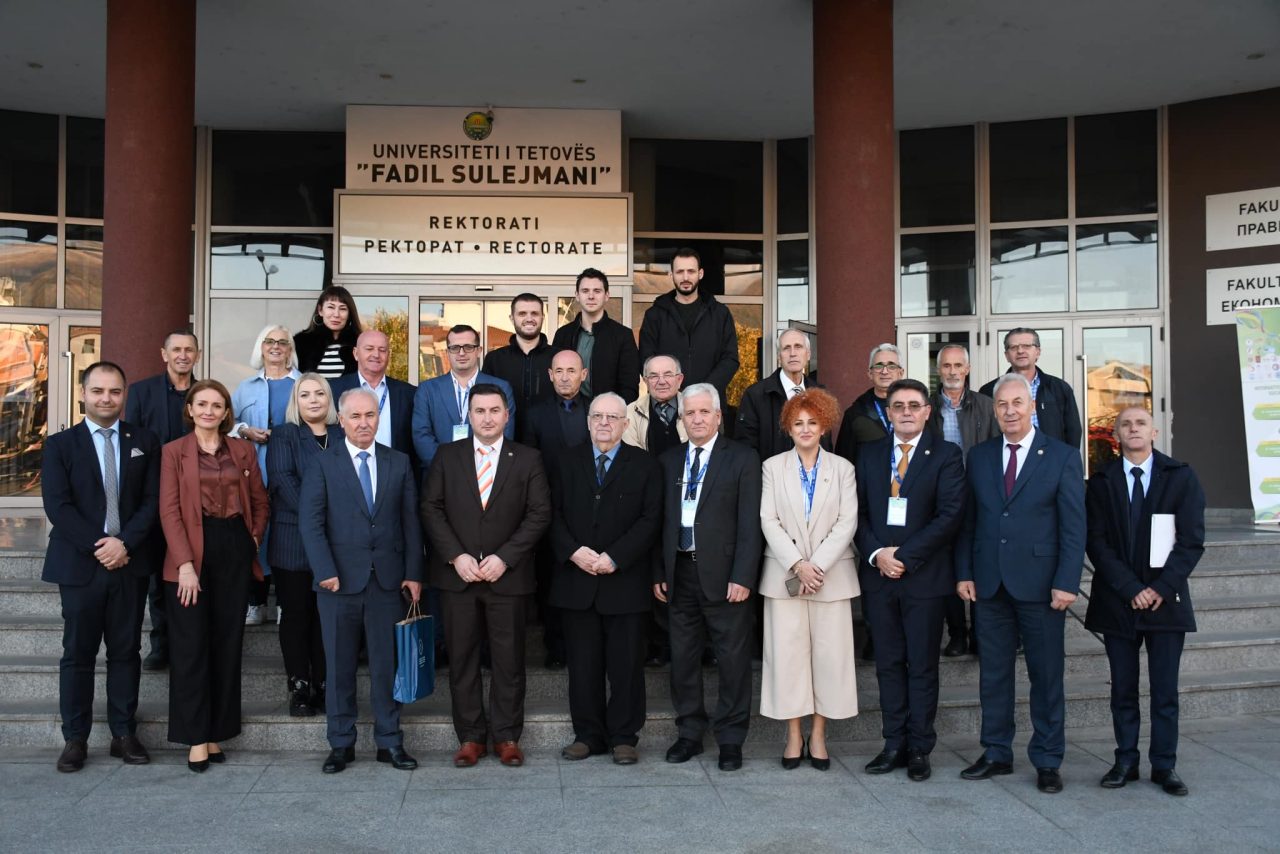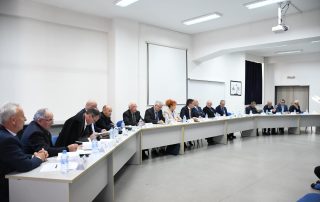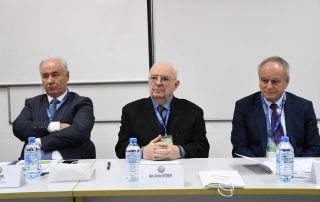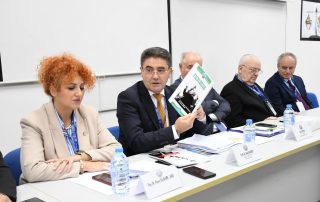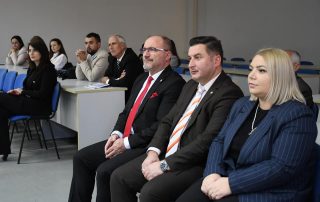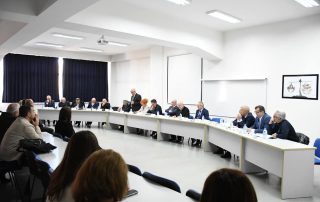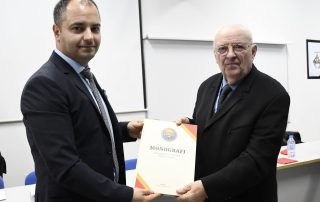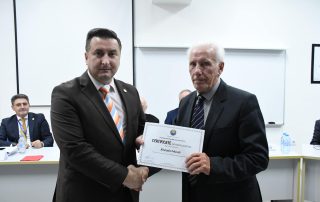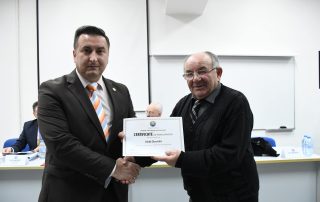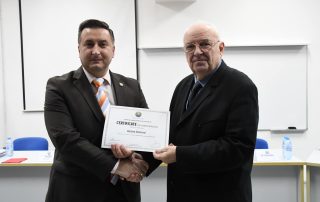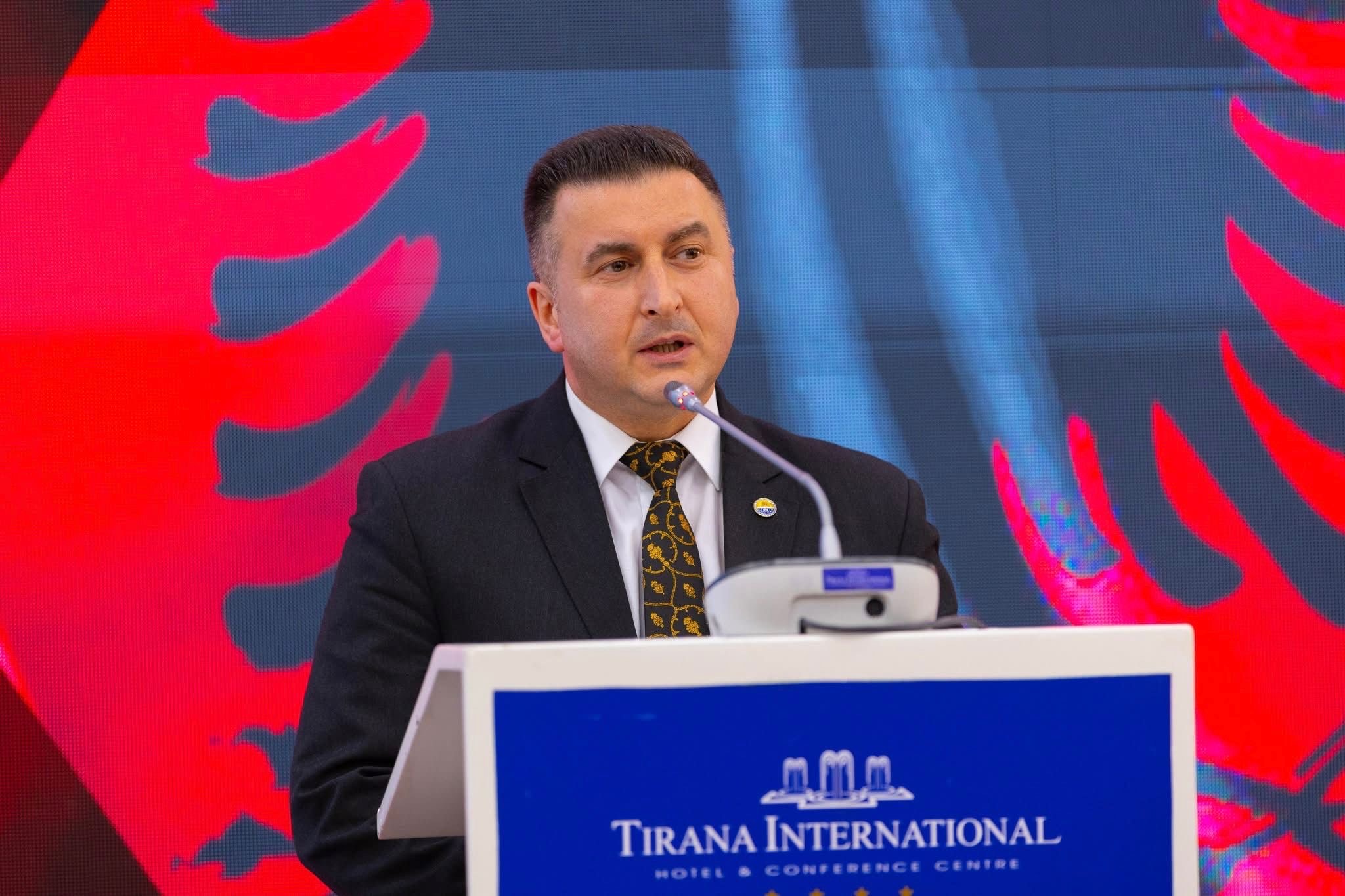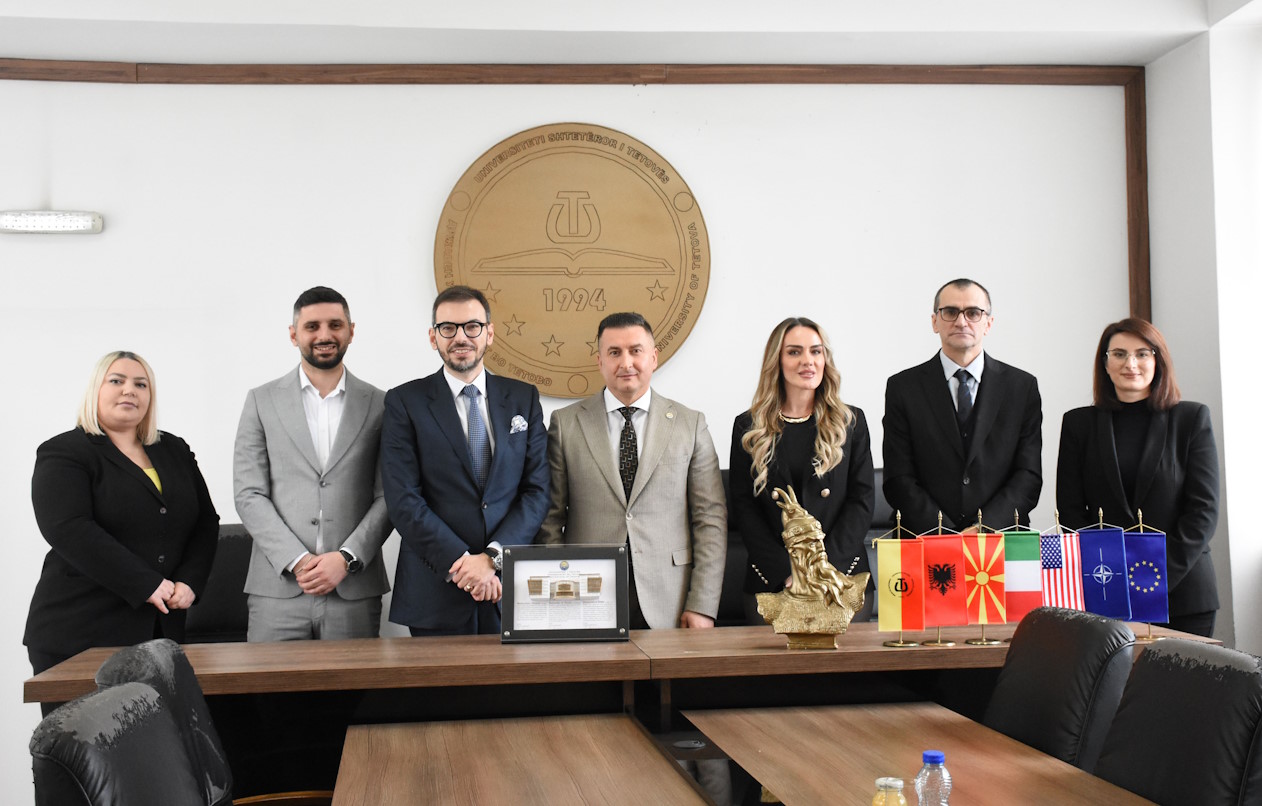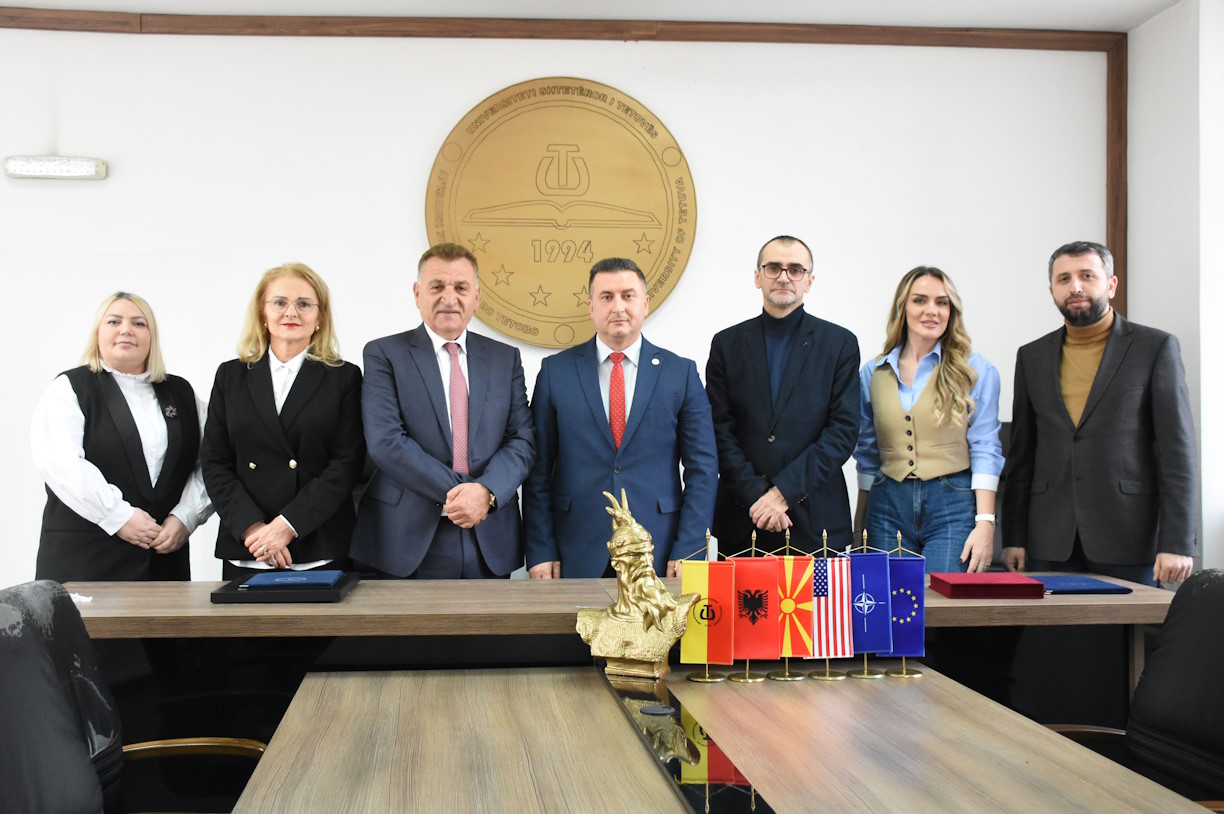Independent Macedonia during 1991 – 2001″ was the central topic of the Scientific Symposium organized by the Study Program of History of the Faculty of Philosophy of the University of Tetova. Former politicians and holders of various public functions of that period, university professors, historians, sociologists, pedagogues and journalists, today in the presence of the management staff of our University, students and professors, debated about the political developments in Macedonia in the first decade of pluralism.
Dean of the Faculty of Philosophy, Prof. Dr. Ibish Kadriu said that the Scientific Symposium is organized within the framework of the Congress of Human, Social Sciences and Arts and aims to bring to light many fragile events that have happened since the independence of Macedonia until 2001, as well as the role of the first Albanian political party that has played in the protection of national rights and interest. “Today’s presenters are witnesses that with the independence of Macedonia, was created a fragile democracy and all the Albanian academic people of these territories took the initiative to establish a party, which at that time was not only a political party but a nationwide movement with the aim of consolidating the ranks of Albanians for the protection of their rights. The situation has been very serious because the other side, namely the Macedonian side, was not ready for such a thing and tried at all costs to create a unitary state, which fortunately in recent years have realized that Macedonia can exist with the Albanians, because without the Albanians there is no Macedonia. There were extremely many riots that time, among the very important events, since we are in the temple of knowledge, in UT, in 1994 was founded the UT, and these like-minded people, who today are part of the panel, then opposed the Macedonian side, who foundation of the UT considered it as a dead baby, while they said that that child was not only born but also will live, and today we are witnessing that next year this child, namely the University of Tetova marks the jubilee year, the 30th anniversary of its foundation”, emphasized the Dean of Faculty of Philosophy, Prof. Dr. Ibish Kadriu.
The coordinator of the symposium, Prof. Dr. Zeqirja Rexhepi said that the special feature of this Scientific Symposium is the participation of the protagonists of the events of historical developments in the period 1991-2001. According to him, in order to complete the entire picture of historical developments in the period in question, other symposia will have to be held, which will fill in the gaps in the events. “From a historical perspective, inter-ethnic political contradictions in the 90s came as a result of the irresponsibility of Macedonian political representatives, during the process of establishing the new state. During this process, only the political reality was taken as a basis, in which case the Albanian political factor in the highest legislative institution was outvoted on an ethnic basis in every initiative. The political developments in independent Macedonia, in the 90s, created conflicting perceptions, which followed the process of establishing the Macedonian state. It should be emphasized that Macedonia as a state, in its political borders, always remained a multi-ethnic reality, but the main carriers of all processes were and remained the two largest ethnic communities: the Macedonians and the Albanians. If there had been a new state, statesmen, undoubtedly North Macedonia today would be completely different and would not have been emptied by the younger generation. Unfortunately, these were missing, that’s why all developments, such as political and economic ones, have written in the wrong historical direction”, emphasized, among other things, Prof. Dr. Zeqirja Rexhepi.
Also present at this Symposium was the Ombudsman Naser Ziberi, who focused on the topic: “Ohrid Agreement – Unfinished Agreement”, while the General, Gëzim Ostreni addressed the topic “War and Peace of the National Liberation Army (UÇK)”. while former politician Muhamed Halili discussed the “Frowik Plan – starting point in the Albanian-Macedonian negotiations of 2001”.
Besides these, the symposium also addressed other topics, such as: – “Civil and political disobedience”, by Prof. Dr. Xheladin Murat; “Fiscal decentralization after the territorial division of 1996, in Macedonia”, by Prof. Dr. Besnik Fetai; “Discrimination of Albanians in Macedonia in the 90s”, by Prof. Dr. Fehari Ramadani, “The humanitarian crisis of Kosovo and its reflection in Pollog in 1999” by Prof. Dr. Zeqirja Idrizi; “The demonstration of February 1, 1990 in Tetovo”, by Mr.sc. Ismet Krosi; “The efforts of the Albanian people in the Eastern regions for the development of secondary and higher education in the 90s”, by Prof. Dr. Nebi Dervishi; “The anti-Albanianism of a former communist – President”, by Prof. Dr. Zeqirja Rexhepi “The silent voice of Albanian journalism in Macedonia 1991-2001”, by Prof. Dr. Abdylnaser Sinani; “International recognition of Macedonia’s independence from Albania” by Asst.Prof. Dr. Zejni Mazllami; “Kosovo in international resolutions 1991/93”, by Prof. Dr. Isak Sherifi and “Radical steps in BDE after 1998”, by Prof. Dr. Zeqir Kadriu.
At the end of this symposium, the panelists concluded that: The Republic of Macedonia, since the declaration of independence, the constitution did not respect the political reality, demanding the construction of a unitary state and not the concept of the citizen state. The demands and needs of the Albanians in Macedonia could not be met through the faculty or pedagogical academy, but these demands were met only with the University of Tetova. The international political factor found before the sudden fact of the breakup of Yugoslavia had a tremendous impact on the destinies of the republics and peoples of the former Yugoslavia. From independence until 2001, Albanians were discriminated against in all state institutions. Albanians benefited nothing from the process of privatization of state property, fiscal decentralization continues to be unfair to municipalities with an Albanian majority. The Albanian political factor played a historic role during the humanitarian crisis in Kosovo, despite the pressures. The Albanian press did not meet the expectations of the Albanian population in Macedonia, as a result of political interventions. The coordinating council of political parties in the former Yugoslavia, despite efforts, did not produce the expected results. The Frowik plan, despite being informal, served as a starting point for the Albanian-Macedonian negotiations. The political struggle of the Albanian political factor on the eve of the beginning of the fighting in 2001 delayed the construction of a unified political stance. The armed struggle of the UÇK (NLA) achieved all the objectives set out in communiqué number 6 and the memorandum. The Ohrid Agreement as a political compromise resulting from difficult negotiations has made it an unfinished process, as if that was not enough, it suffered interference during approval in the assembly.
